AI Development Services: Building Intelligent Solutions with Kaopiz
In the digital era, artificial intelligence (AI) has evolved from a futuristic concept into a practical and indispensable technology driving transformation across industries. From automation and analytics to decision-making and customer experience, AI is redefining how businesses operate and compete.
AI development — the process of designing, training, and deploying intelligent systems — has become a cornerstone of innovation for enterprises seeking to scale efficiently, enhance agility, and unlock new business value.
This guide explores the fundamentals of AI development services, their benefits, best practices, and how Kaopiz helps organizations turn data into intelligence through world-class AI development services.
Table of Contents
- What Are AI Development Services?
- Why AI Development Matters for Businesses
- Core Components of AI Development
- Types of AI Solutions in Development
- AI Development vs. Traditional Software Development
- Best Practices for Successful AI Development
- Common Challenges in AI Development
- How Kaopiz Transforms Business Operations with AI Development Services
- Conclusion
- FAQs
What Are AI Development Services?
AI development services refer to the end-to-end process of creating software systems that can perform tasks requiring human intelligence — such as learning, reasoning, perception, and decision-making. They combine disciplines like machine learning (ML), deep learning, natural language processing (NLP), and computer vision to develop models that analyze data, identify patterns, and adapt over time.
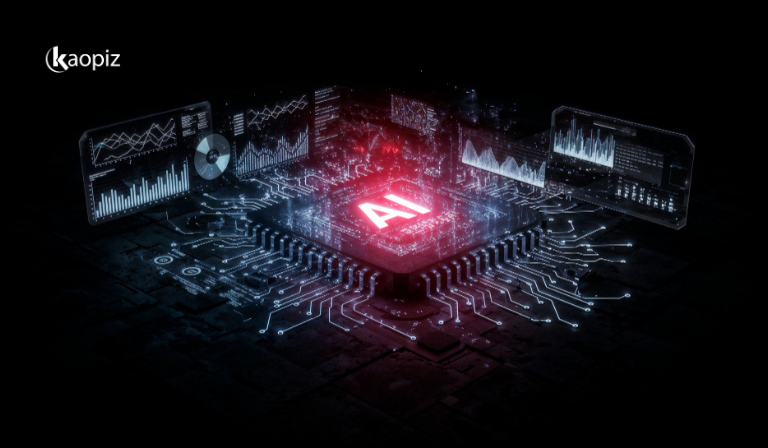
The typical AI development lifecycle includes:
- Problem Definition – Identifying the business challenge AI will address.
- Data Collection and Preparation – Gathering and cleaning data to train models.
- Model Design and Training – Building and fine-tuning algorithms using frameworks like TensorFlow or PyTorch.
- Testing and Validation – Ensuring accuracy, reliability, and fairness of the model.
- Deployment and Monitoring – Integrating the AI model into production environments and continuously optimizing performance.
Unlike traditional systems, AI solutions evolve through data and feedback, making them increasingly intelligent over time.
Why AI Development Matters for Businesses
AI development is no longer a luxury — it’s a strategic necessity for companies that aim to remain competitive and data-driven. By embedding AI into business operations, enterprises can:
- Drive Operational Efficiency: AI automates repetitive and time-consuming tasks such as document processing, quality inspection, and customer support. This allows teams to focus on high-value strategic work, reducing costs and improving productivity.
- Enable Data-Driven Decisions: AI systems analyze massive datasets in real time, offering actionable insights that guide better business decisions — from demand forecasting to risk management.
- Enhance Customer Experience: Through chatbots, recommendation engines, and predictive personalization, AI enables hyper-personalized customer interactions that build loyalty and satisfaction.
- Innovate Products and Services: AI drives innovation by powering new capabilities such as smart assistants, autonomous systems, and adaptive software that responds dynamically to user behavior.
- Strengthen Competitive Advantage: Organizations that invest early in AI development gain the ability to innovate faster, respond to market changes swiftly, and deliver superior customer value.
In short, AI transforms data into a strategic asset — one that fuels continuous improvement, intelligent automation, and smarter decision-making.
Core Components of AI Development
AI development involves multiple integrated components that ensure the system’s intelligence, accuracy, and scalability.
- Data Collection and Preparation: Data is the foundation of every AI system. Quality data — diverse, relevant, and unbiased — ensures model accuracy. The process includes gathering, labeling, cleaning, and normalizing large volumes of structured and unstructured data.
- Model Design and Training: Developers select appropriate algorithms and model architectures based on the problem type (e.g., classification, prediction, clustering). Models are trained using datasets until they achieve acceptable accuracy levels.
- Model Validation and Testing: Before deployment, models undergo rigorous evaluation to check for overfitting, bias, and reliability across diverse scenarios.
- Deployment and Integration: Once validated, the AI model is integrated into business systems via APIs or cloud environments. Scalability and system compatibility are key to ensuring seamless adoption.
- Monitoring and Continuous Improvement: AI models require ongoing evaluation to maintain accuracy as new data emerges. Continuous monitoring helps detect drift and ensures the model adapts to evolving business needs.
Together, these components form the backbone of a successful AI development process — balancing innovation with stability and trust.
Types of AI Solutions in Development
AI development encompasses a wide range of solutions, each serving unique business objectives:
- Predictive Analytics: Uses historical data to forecast future outcomes — from sales trends to equipment maintenance. It’s widely applied in finance, retail, and manufacturing.
- Natural Language Processing: Enables machines to understand, interpret, and generate human language. Applications include chatbots, sentiment analysis, voice recognition, and automated translation.
- Computer Vision: Empowers systems to analyze visual inputs like images and videos. It’s used in facial recognition, autonomous vehicles, quality control, and medical imaging.
- Intelligent Automation: Combines robotic process automation (RPA) with AI to handle complex workflows, from invoice processing to customer onboarding.
- Generative AI: Creates new content — text, images, code, or designs — using trained models like GPT or diffusion networks. This technology is revolutionizing content creation, marketing, and design.
Each AI solution represents a unique blend of data science, engineering, and innovation tailored to industry-specific needs.
AI Development vs. Traditional Software Development
While both involve coding and system design, AI development differs fundamentally in how it learns and evolves.
| Aspect | Traditional Software Development | AI Development |
|---|---|---|
| Logic Basis | Rule-based, pre-defined instructions | Data-driven learning and adaptation |
| Output | Deterministic (same input → same output) | Probabilistic (outputs depend on patterns) |
| Maintenance | Requires manual updates | Continuously improves through retraining |
| Goal | Automate predefined tasks | Enable learning and decision-making |
| Tools | Conventional programming (Java, C#, etc.) | ML frameworks (TensorFlow, PyTorch, Scikit-learn) |
This difference allows AI systems to adapt over time, making them more powerful and scalable in dynamic business environments.
Best Practices for Successful AI Development
To ensure effectiveness and long-term value, organizations should adopt these best practices in their AI development journey:
- Define Clear Business Objectives: Start with well-defined goals — whether it’s reducing costs, improving customer satisfaction, or increasing process efficiency. Align AI initiatives with measurable KPIs.
- Prioritize Data Quality: The quality of your data determines the quality of your model. Invest in data cleaning, enrichment, and governance to eliminate bias and ensure accuracy.
- Adopt Agile and Iterative Development: AI models require experimentation. Using an agile approach allows developers to test, learn, and refine models quickly.
- Implement MLOps: Machine Learning Operations (MLOps) streamline model lifecycle management — from training to deployment and monitoring — ensuring reliability and scalability.
- Ensure Ethical and Responsible AI: Adopt transparency, fairness, and privacy standards. Responsible AI practices build user trust and prevent unintended consequences.
- Collaborate Across Domains: Successful AI projects blend technical expertise with domain knowledge. Encourage collaboration between data scientists, engineers, and business leaders.
By following these best practices, businesses can accelerate AI adoption while minimizing risks and maximizing ROI.
Common Challenges in AI Development
Despite its potential, AI development presents several challenges that organizations must manage effectively:
- Data Limitations: Insufficient or poor-quality data can lead to inaccurate models. Addressing this requires robust data strategies and augmentation techniques.
- Model Bias: Bias in training data can produce unfair outcomes. Regular audits and diverse datasets help maintain ethical AI practices.
- Integration Complexity: Integrating AI into existing IT infrastructures often requires modernization and strong API frameworks.
- Talent Shortage: Skilled AI engineers and data scientists are in high demand, making talent acquisition and retention critical.
- Cost and Scalability: Building and maintaining AI systems require significant investment in infrastructure, cloud services, and expertise. Optimizing costs through cloud AI services and modular architectures can help.
Recognizing these challenges early enables organizations to plan strategically and execute effectively.
How Kaopiz Transforms Business Operations with AI Development Services
At Kaopiz, we empower organizations to accelerate digital transformation and achieve operational excellence through AI development. With over a decade of software engineering experience and a strong global presence, we deliver AI-driven solutions that help enterprises automate workflows, enhance decision-making, and unlock new business value.
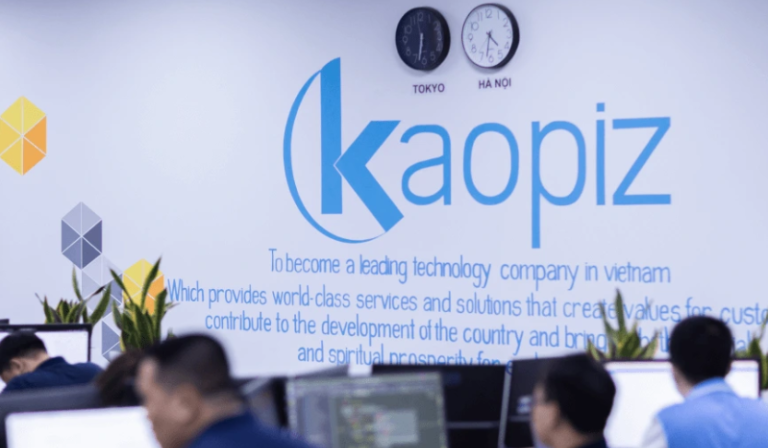
We combine our expertise in machine learning, computer vision, and generative AI to build practical, scalable systems tailored to the unique needs of industries such as finance, healthcare, retail, education, and construction. Our goal is simple — to help businesses modernize operations, boost efficiency, and gain a lasting competitive edge in today’s digital-first economy.
AI-Powered Automation and Process Optimization
We develop intelligent automation systems that streamline complex workflows and eliminate repetitive manual tasks. Using computer vision and Optical Character Recognition (OCR), our solutions help clients automate data extraction, document processing, and quality control — minimizing errors while increasing speed and accuracy.
Enhancing Customer Experience with Generative AI
We harness the potential of generative AI and NLP to build AI chatbots and virtual assistants that engage customers in real time. These intelligent solutions deliver human-like, personalized interactions, enabling businesses to strengthen relationships and enhance overall user experience.
Driving Data-Driven Decision-Making
Our AI solutions empower decision-makers with actionable insights. Through predictive analytics, data visualization, and AI-powered dashboards, we help organizations forecast trends, optimize performance, and make smarter strategic decisions — transforming data into a true competitive advantage.
Scalable, Secure, and Cloud-Integrated AI Systems
We prioritize scalability, security, and reliability in every AI solution we build. By leveraging cloud-native architectures and advanced MLOps practices, we ensure that our clients can seamlessly scale their systems, manage data securely, and maintain optimal performance across their operations.
Client-Centered, Agile Approach
We believe every business challenge is unique — and so should be the solution. That’s why we adopt agile methodologies and a client-first mindset, ensuring flexibility, transparency, and close collaboration throughout every stage of the project. From consulting and design to deployment and maintenance, we tailor each AI solution to our client’s specific goals and growth strategy.
Conclusion
AI development represents the next frontier of business transformation. As industries embrace automation, data intelligence, and generative technologies, companies that invest strategically in AI will lead the way toward smarter, faster, and more adaptive operations.
With its proven expertise, innovation-driven mindset, and client-first approach, Kaopiz stands ready to help organizations harness AI’s full potential — from idea to execution.
Transform your business with intelligent AI development.
Partner with Kaopiz today to turn your data into a strategic advantage.
FAQs
- What Is AI Development?
- AI development involves designing and implementing intelligent systems capable of learning and decision-making using data-driven algorithms.
- How Long Does AI Development Take?
- Project duration varies depending on complexity — from a few weeks for prototypes to several months for enterprise-scale implementations.
- What Industries Benefit Most from AI Development?
- AI drives value across all sectors — including healthcare, finance, manufacturing, logistics, and retail — by improving efficiency and insights.
- How Can AI Reduce Operational Costs?
- AI automates repetitive tasks, optimizes workflows, and reduces errors, directly lowering time and resource expenditure.
- Why Choose Kaopiz for AI Development Services?
- Kaopiz combines deep technical expertise, a decade of experience, and a client-centered approach to deliver reliable, scalable, and ethical AI solutions that align with your business goals.
Trending Post
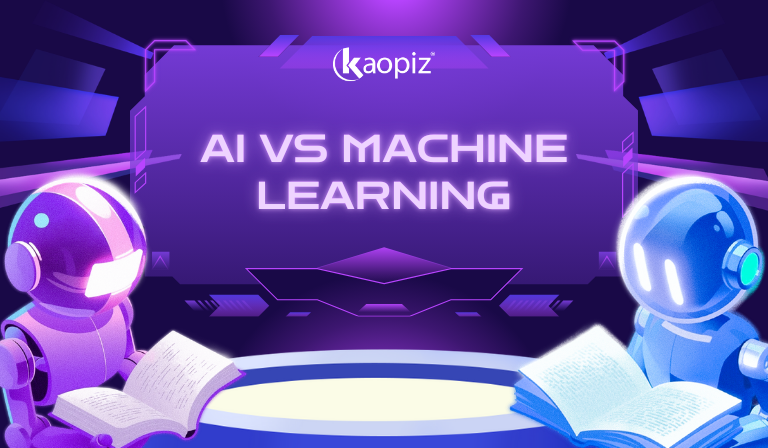
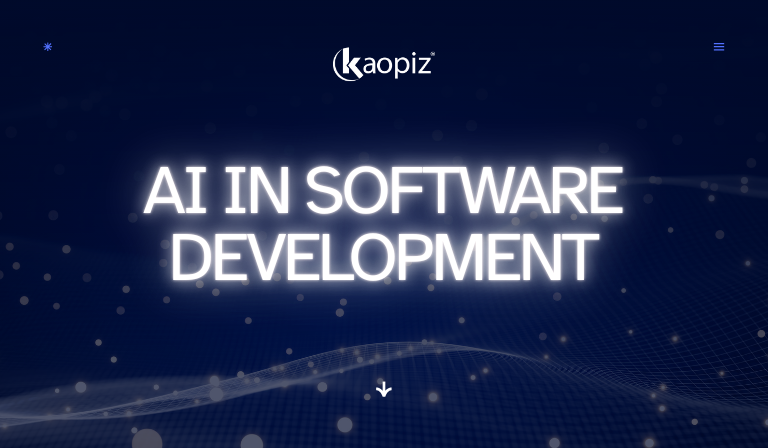
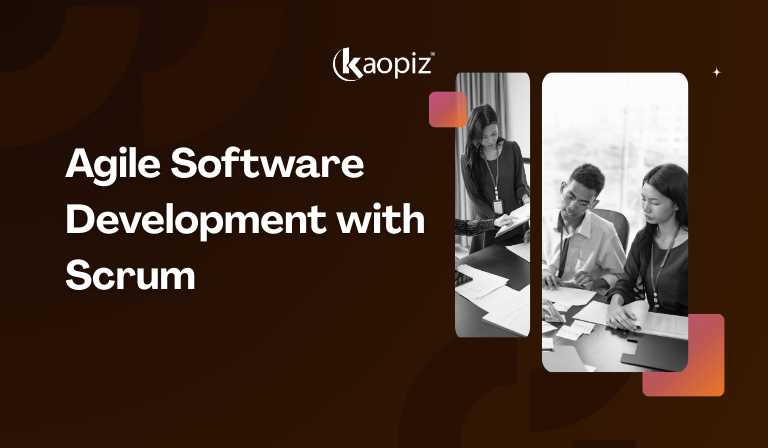
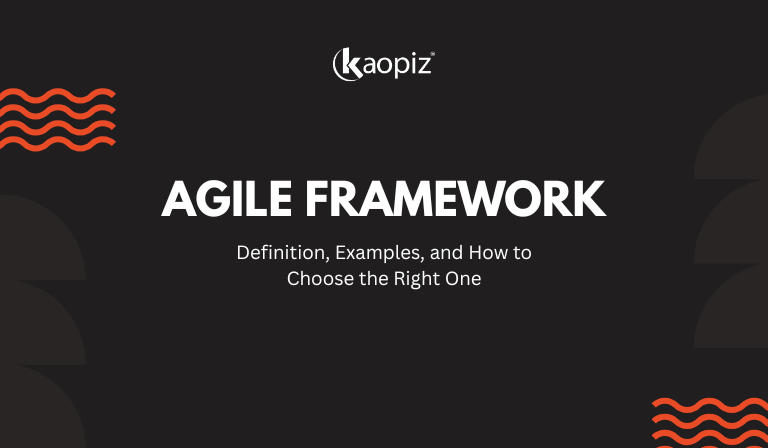
















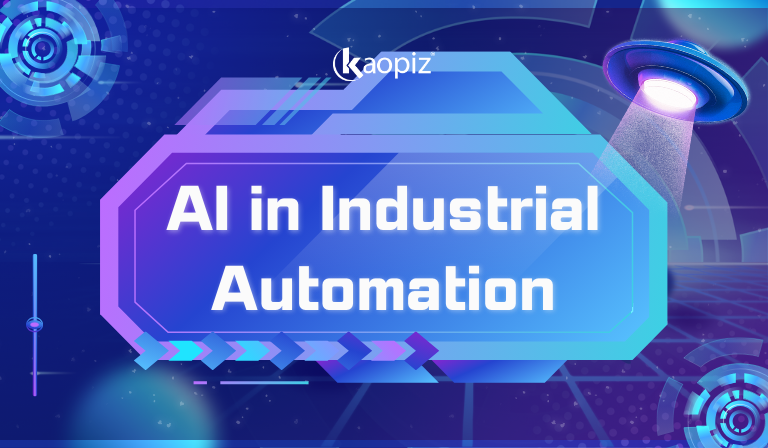

No Comments yet!